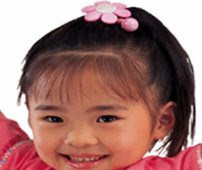For parents who speak the foreign language they are teaching to their children, it is important to remember that in the early years we do not want to critique a child's language skills.
If he or she makes a grammatical error, for example, or leaves something out, you can focus on using the words properly yourself, but do not stop and make a lesson out of what your child just said.
The reason we say this is that we want to foster exploration and creativity with the second language, and stopping to criticize a young child just slows their use of the language because they begin to stop and think. This is not how young children absorb language! They need to hear it many times, interact freely in the language, and then they will absorb it.
If you do not speak the language that your child is learning, a great way to help is to start studying it yourself!
Montessori and Timetables
11 years ago
